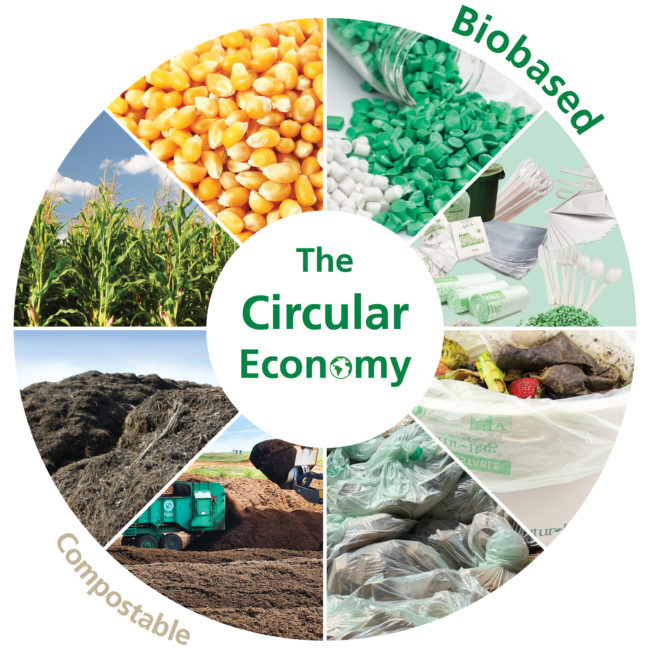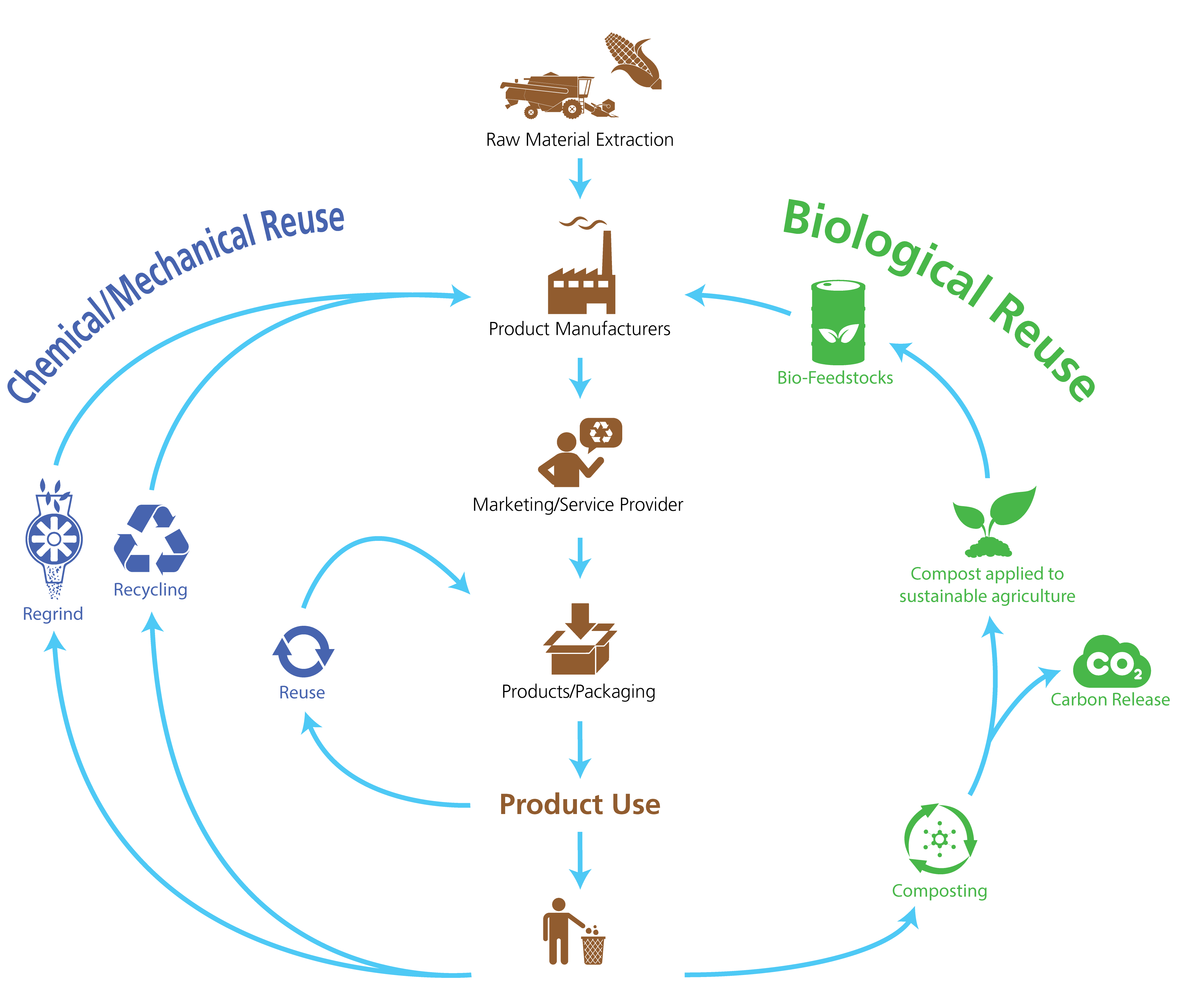At Natur-Tec®, our Commitment to Sustainability guides our innovation. Every day, our teams are working to develop the most innovative products and technologies to make the world a better place. We offer both biobased and compostable solutions designed to integrate into the circular economy.
Committed to a Sustainable Future
Natur-Tec® and the Circular Economy
The future is circular.
In a world filled with finite resources, products and their manufacturers must adapt and embrace sustainable practices that benefit consumers and the planet. Product design and packaging offer tremendous opportunities to shift from a linear economy to a circular economy.
Biobased
Natur-Tec® products begin their life as plants. As plants grow, carbon present in the atmosphere as carbon dioxide is sequestered into soils through photosynthesis, and life-sustaining oxygen is released.
At the end of the growing season, plant-biomass is extracted and converted into biobased polymers – such as polylactic acid (PLA).
Natur-Tec® utilizes PLA and other organic and inorganic feedstocks to develop our specialty biobased compounds and formulations.
Biobased polymers are used to manufacture a wide variety of biobased and compostable products, such as: cutlery and other food service packaging.

Compostable
In 180 days or less, food scraps, compostable products, and other compostable materials have been converted into valuable compost. This compost is then applied as a nutrient-rich soil amendment to sustainable agriculture.
Composting is a two-step process comprising fragmentation – when materials break down – and biodegradation – where microbes consume organic material to support their life processes and release carbon dioxide, heat, and biomass or compost.
Compostable products, food scraps, and other organic materials are separated and collected. This material is then sent to industrial composting facilities to be composted.
Biobased and compostable products are used in zero-waste and organics collection programs.
What does it mean to be Regenerative?
The Linear Economy
Today, most products and packaging are designed to be used once and discarded. This represents enormous amounts of wasted material and pollution. As landfills reach capacity and microplastics pollute the world’s most remote regions, the need for change is imminent.

The Circular Economy
A “Circular Economy” is focused on products and materials being used over and over, in a continuous loop, rather than discarded. The Ellen MacArthur Foundation was launched in 2010 to accelerate the transition to a circular economy. In a circular economy, products are reused. Products that cannot be reused are recycled by chemical or mechanical processes, or through biological processes such as composting.

